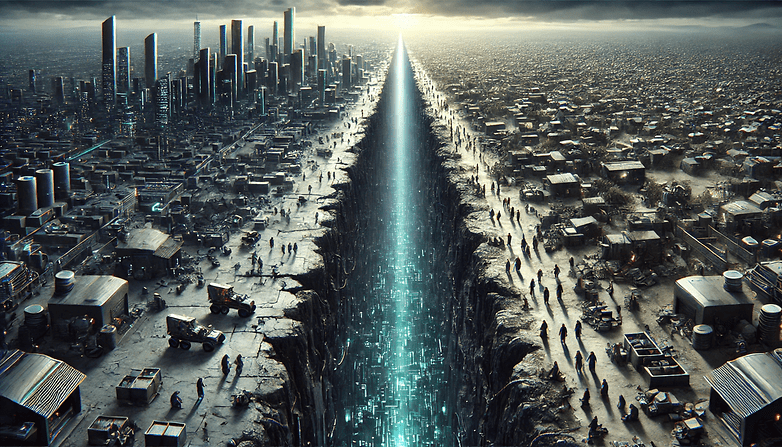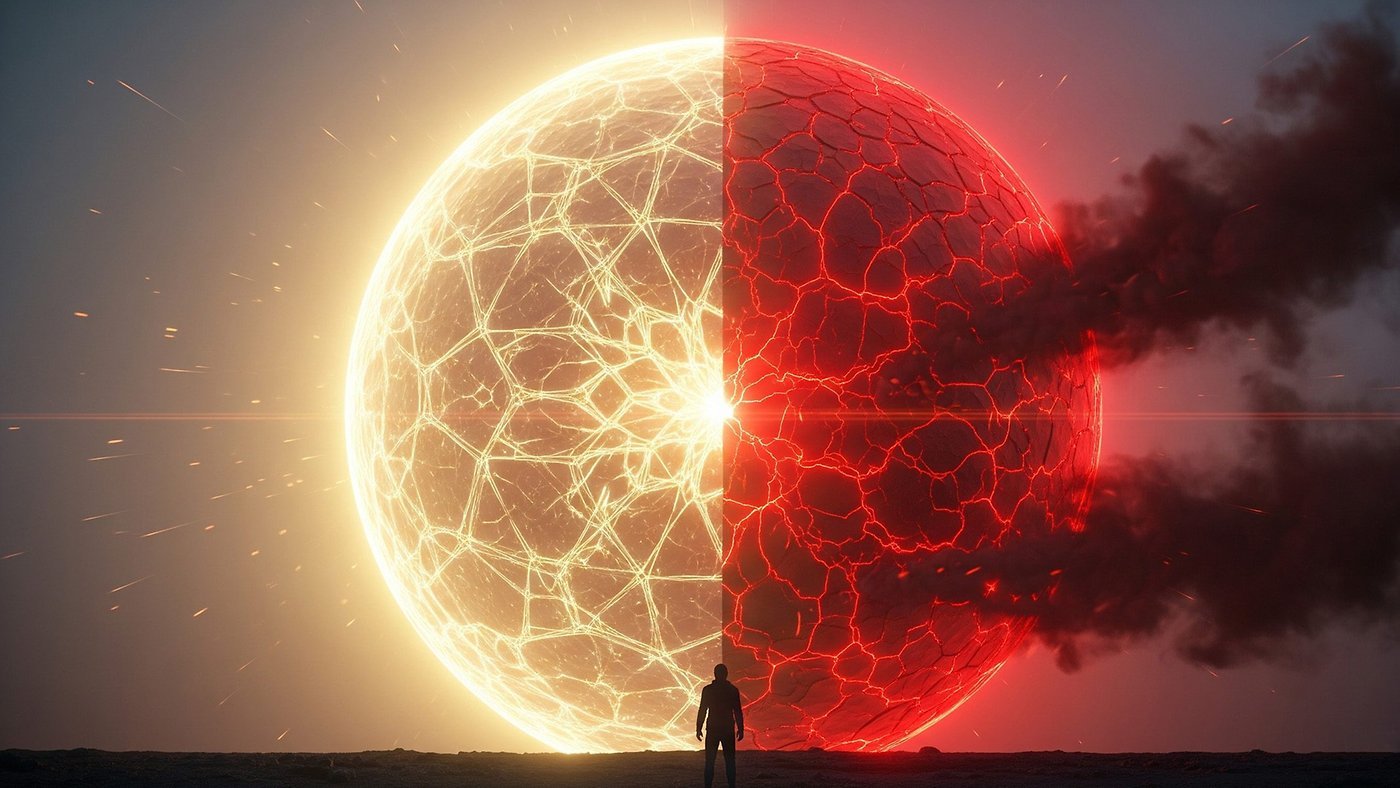Saving the World or just PR Bullshit?
We reported how Mark Zuckerberg declared that Meta had come a good deal closer to achieving Superintelligence. My serious question to everyone: Have you truly considered what this could mean? I have, and I have several thoughts that make my stomach churn.
First of all, I hope we can all agree that Zuckerberg’s personal Superintelligence is less a vision of the future and more PR self-defense, right? It’s a part of communicating in the tech industry to paint the most optimistic picture of the company’s future when announcing quarterly figures. Elon Musk has perfected this strategy; almost every announcement made by the Tesla boss exudes this penetrating scent of vaporware (i.e., a product that is announced but never actually appears).
What Exactly is Superintelligence?
Let’s briefly clarify what we’re referring to. There is a lot of talk in the AI world about AGI, ASI, and, finally, Superintelligence. AGI is the next threshold that OpenAI, Google, and the other AI giants want to achieve. AGI, or Artificial General Intelligence, refers to an AI that is as intelligent as a human being. In other words, not a single instance, including ChatGPT, has so far achieved human-level performance in terms of writing. AGI means the AI can replicate human intelligence in every area, whether it’s social interaction, math, or creativity.

ASI (Artificial Superintelligence) is often used synonymously with superintelligence, referring to an AI that is superior to a human being. Much better! Even if the brightest minds in the world came together, they would not be able to solve problems that are a mere trifle for an ASI. This is precisely the kind of intelligence Mark Zuckerberg was talking about, and he wants to make it accessible to all of us, in the near future.
Two important points to note about these terms:
- They are not firmly defined. OpenAI considers AGI to be achieved when AI surpasses humans in most economically valuable tasks. Google, on the other hand, looks at benchmark tests, as well as practical applicability. For us, this means that the boundaries of these terms are vague and can be interpreted in different ways. This makes it perfect for PR, because virtually any company can twist its definition to suit its needs.
- Experts are still debating when we will achieve AGI or ASI status. For some, achieving AGI by 2030 seems realistic, while others doubt whether it will ever reach that far.
What Zuckerberg Says, What he Means — and Why it’s Terrible
One thing to note at the beginning of this section is that I’m specifically discussing Zuckerberg’s intentions. You can be sure that other tech giants are also thinking along similar lines. With his latest statement, however, Mark Zuckerberg made it clear that he is not dwelling on AGI at all and is working directly towards Superintelligence. He made it crystal clear what this could mean for us:
‘Meta’s vision is to make personal superintelligence accessible to everyone. We believe in putting this power into people’s hands so that they can use it for what is important to them in their lives.
He painted his vision with bold colors and talks about how Superintelligence will help us achieve our goals, let us experience every adventure, and become who we really are, and more. Sounds wonderful, doesn’t it? However, you’d better not fall for this snake oil salesman. After all, we’re talking about the man who wanted to connect the whole world using Facebook: “Making the world more open and connected” and all that …
And what has become of it? A world where everyone is at each other’s throats. A world that has perhaps never been more connected, but also never more divided. Mark Zuckerberg has helped to create this world with his platform, placing it under his thumb and his algorithm.
The absurd thing is that I take Zuckerberg’s word seriously, that he really wants to connect the world. Do note that he also likes both power and money. His kowtowing to Trump at the beginning of 2025 disqualifies him for the job of the world’s savior, as much as he likes to see himself in this role. The biggest problem I have with this is something he delivered in the same text, where he also discusses the status of superintelligence. He also revealed the solution in the form of smart glasses, as we already know them — glasses like the Ray-Ban Meta Skyler.

Zuckerberg also very obviously addressed it directly in his letter to us. He praised the glasses for allowing us to see what we see and hear what we hear. That’s where it gets creepy: what is probably the worst data octopus in the world is no longer satisfied with our names, our photos, our thoughts, and so on. Tomorrow, Meta will also want to know what you hear and see throughout the day!
This means that we would be dumping a mountain of additional data into Meta’s company. A valuable resource to help understand us better, train AI models, and earn an outrageous amount of money. All without having to leave the metaverse, i.e., Meta’s ecosystem. So much for the beatific superintelligence, we would have to throw ourselves completely at Meta: Include us in your ecosystem, Meta. Take our data, do what you want with it, and force us to buy your latest glasses!
More Money, More Power — and Less Transparency
At the same time, Meta explained that because the technology is so risky, it no longer wants to make everything publicly available. Open source, therefore, only applies to those areas that Meta decides should be made public. It sounds as if they want to proactively prevent others from also achieving Superintelligence status.
I also think the company has ripped enough people off to send representations to the EU with its plans. Along the lines of: Really? You want to regulate us? But what could you possibly have against us wanting to give the joy-making superintelligence to all citizens on the continent?
Our General Problem with Superintelligence
Let’s not just bash Mark Zuckerberg and Meta – the other tech bros are no angels, either. The actual problem runs much deeper: our society is far from ready for such powerful technology.
The risk is not that superintelligence will wipe us out. The risk is that we can’t handle it responsibly. At the moment, I see three huge hurdles:
- Global disagreement — Whether culture, religion, or the level of knowledge, we are too diverse to agree on binding rules. Without global standards, we risk chaos from national solo efforts.
- Unequal distribution of power — Money and influence are in the hands of a few. Some CEOs are more powerful than governments, and this power grows exponentially with each new technology unveiled.
- Exclusivity instead of openness — Those who hold Superintelligence in their hands first have little interest in sharing it. On the contrary, the temptation to monopolize it is enormous.
We Need a Level-up for Society
Honestly? As a society, we haven’t even properly understood the internet in over three decades. So, how are we supposed to grasp the consequences of artificial intelligence in the shortest possible time? We need a better, smarter, more educated society. We only need to level up once we have acquired media skills, are able to recognize fakes, and agree on facts; only then will we be able to solve our social problem(s).

But just how and how fast is this supposed to work? Take a look around the web: wherever you look, people are arguing. It’s not just the digital divide that causes a chasm between us. We are stewing in our own ideological bubbles and rarely look beyond the edges of our plates. I don’t want to drift too far into the philosophical or esoteric circles. However, I fear we still have difficult years ahead of us as a society. We will have to wade through shit for years to come before things get better.
Our society must mature in such a way that electoral disasters like Donald Trump no longer happen to us. We have to find ways to get rid of selfish decision-makers who want to keep a superior AI for themselves out of greed for power or money. Only then can we hope that a superior AI will solve problems for and with us that currently seem unsolvable — world hunger, diseases, poverty, climate change, you name it.
My Conclusion
Yes, of course, a wonderful utopia is possible. But it is only one of two options. We can also turn towards dystopia at the fork in the road. It’s actually so simple: with solidarity, empathy, and the will to change, we could achieve so much today. But how are we going to agree on something so complex globally if we can’t even agree on speed limits or time zones?
That’s precisely why it’s not just people in politics or tech billionaires who are required for this effort. It’s about each and every one of us. We need to become more decent, more open, and perhaps also more rebellious. Before Superintelligence can help us, we have to help ourselves.
